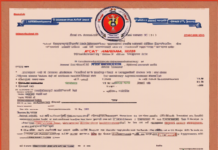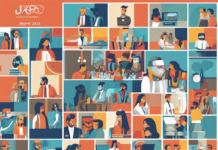In today’s digital age, where technology and social media play a significant role in our lives, online privacy and data security have become more important than ever. The recent scandal involving the leak of personal information from Rachel_Mann347’s accounts has raised several concerns about the safety and security of our online presence. In this article, we will delve deep into the Rachel_Mann347 Leak scandal, exploring the causes, implications, and ways to protect ourselves in the virtual world.
The Rachel_Mann347 Leak Scandal: What Happened?
The Rachel_Mann347 Leak scandal refers to the unauthorized disclosure of personal information from Rachel_Mann347’s accounts on various online platforms. This breach of privacy involved the leakage of sensitive data, including personal photos, messages, and financial details, which were then exposed to the public without Rachel_Mann347’s consent.
How Did the Leak Occur?
The leak in the Rachel_Mann347 scandal was believed to have originated from a cybersecurity breach on one of the platforms that Rachel_Mann347 used regularly. Hackers exploited vulnerabilities in the platform’s security infrastructure, gaining unauthorized access to Rachel_Mann347’s accounts and extracting personal information from them.
Implications of the Rachel_Mann347 Leak
The consequences of the Rachel_Mann347 leak were far-reaching and severe, both for Rachel_Mann347 personally and for the broader online community. Some of the key implications of this scandal include:
-
Loss of Privacy: Rachel_Mann347’s right to privacy was violated, leading to the exposure of personal and intimate details to the public.
-
Identity Theft: The leaked information could be used for identity theft and fraudulent activities, posing a significant risk to Rachel_Mann347’s financial security.
-
Reputation Damage: The leak tarnished Rachel_Mann347’s reputation, causing emotional distress and potentially impacting her personal and professional relationships.
Protecting Yourself Online
In light of the Rachel_Mann347 Leak scandal, it is essential to take proactive measures to safeguard your online presence and protect your sensitive information. Here are some tips to enhance your online security:
1. Strong Passwords
Ensure that you use strong, unique passwords for each of your online accounts. Avoid using easily guessable passwords, such as birthdays or pet names, and consider using a password manager to secure your credentials.
2. Two-Factor Authentication
Enable two-factor authentication wherever possible to add an extra layer of security to your accounts. This additional step, usually a code sent to your phone, can prevent unauthorized access even if your password is compromised.
3. Regular Security Updates
Keep your devices and online platforms up to date with the latest security patches and software updates. Vulnerabilities in outdated software can be exploited by hackers to gain access to your information.
4. Privacy Settings
Review and adjust the privacy settings on your social media accounts to control who can see your posts and personal information. Limit the amount of personal data you share online to minimize the risk of exposure.
5. Be Cautious of Phishing Attempts
Beware of phishing emails and fraudulent messages that may trick you into revealing your login credentials or other sensitive information. Be skeptical of unsolicited requests for personal data.
Frequently Asked Questions (FAQs)
Q1: Can I recover my leaked information once it’s exposed online?
A1: Unfortunately, once your information is leaked online, it can be challenging to completely erase it. However, you can take steps to mitigate the damage, such as contacting the website hosting the data and requesting its removal.
Q2: How can I know if my data has been breached?
A2: You can use online tools like Have I Been Pwned to check if your email address or online accounts have been compromised in any known data breaches.
Q3: What should I do if I suspect a security breach on my account?
A3: If you suspect unauthorized activity on your account, immediately change your password, enable two-factor authentication, and notify the platform’s support team about the incident.
Q4: Is it advisable to use public Wi-Fi for sensitive transactions?
A4: It is generally not recommended to use public Wi-Fi for sensitive activities like online banking or shopping, as these networks are more vulnerable to cyber attacks.
Q5: How often should I update my passwords?
A5: It is advisable to update your passwords regularly, ideally every 3-6 months, to reduce the risk of unauthorized access to your accounts.
In conclusion, the Rachel_Mann347 Leak scandal serves as a stark reminder of the importance of online vigilance and security awareness in today’s interconnected world. By adopting best practices for online security and staying informed about cyber threats, we can better protect ourselves from potential data breaches and privacy violations. Remember, safeguarding your digital footprint is not just a matter of convenience but a crucial aspect of safeguarding your identity and personal information in the online realm.








